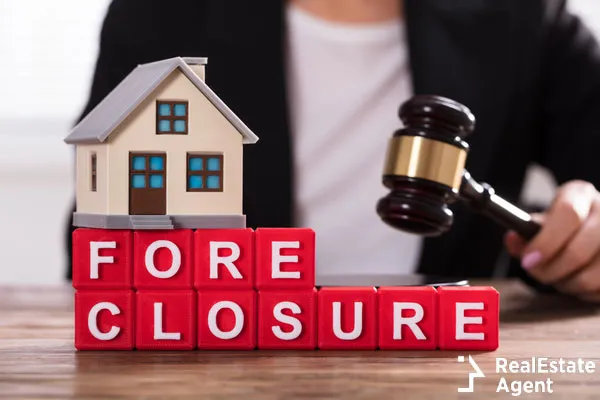 You may have heard that pursuing foreclosure sales is the best way to get a good deal in real estate. While it is true that foreclosure sales can be sold below value, it is important to be aware of the process and potential pitfalls.
You may have heard that pursuing foreclosure sales is the best way to get a good deal in real estate. While it is true that foreclosure sales can be sold below value, it is important to be aware of the process and potential pitfalls.
What is foreclosure?
Foreclosure is the seizure of a property from the homeowner by a lender. This usually happens when the homeowner fails to cover mortgage payments and the property is seized by the mortgage holder. This can happen for any number of reasons, including unemployment, divorce, illness, or death.
Similarly, in a tax foreclosure the property is taken over by the government because the owner has failed to pay taxes on it. After 3-6 months of missed payments, the homeowner will receive foreclosure notification. If the owner or borrower does not reach an agreement of a deed in Lieu of foreclosure or pay up outstanding loans by the specified date, the property will go to auction. Buying a home at a foreclosure auction can be a great investment. However, the deal is not without risks and is best done in consultation with a real estate agent that is a foreclosure expert and aware of the many pitfalls. Foreclosure properties are known to take a long time to close, sometimes up to a year! So be prepared to have this expectation when looking into this route.
Is buying at a foreclosure auction the right choice for you? Read on to find out.
Advantages:
- Properties at a foreclosure auction will often be sold for the amount of the outstanding mortgage balance owed to the foreclosing mortgage holder even if it is less than the property value - this can be a great opportunity for the home buyer to get high value for a low price.
- Cash payment requirements reduce competition.
Disadvantages:
- Hidden costs can raise the price considerably:
- The buyer takes ownership of the property along with any other owed liens, back taxes and mortgages. The home buyer must research the title prior to the auction.
- The bank cannot provide disclosures as to the property history/condition issues. Property condition might be suspect due to damage done by upset homeowners suffering involuntary alienation.
- No commissions or attorney’s fees will be paid; buyer must pay for their own representation.
- If the home is inhabited by the previous homeowners, you will need to take care of evicting them. You can hire professionals to do the job, but should take the added cost into consideration. In addition, some people feel uncomfortable benefitting from another person's misfortune.
In addition, you should be aware that:
- Auction purchase price must be paid in cash on the same day as the auction -- no mortgage is usually allowed. This would be a good time to ask yourself "Should you buy a home with cash?"
- In many cases it is an as-is sale; no inspections allowed.
- If the bank believes an auction will not recover a fair price, the bank may buy the property at auction.
- The process can be quite lengthy and you run the risk of the previous owner reaching a deal with the lender at the last minute.
The foreclosure process varies from state to state, and it is important to research the relevant laws prior to entering negotiations. Individual states follow either a judicial or non-judicial foreclosure process, with additional differences between states. An experienced real estate agent can guide you as to what legal counsel you may need.
With the right conditions, buying a home in foreclosure can be a profitable venture. It should be considered in the context of other available properties and take into account your needs and financial abilities. When deciding on the property that's right for you, it is important to work with a real estate agent who can keep all options open and guide you to the perfect match.
















Have a question or comment?
We're here to help.